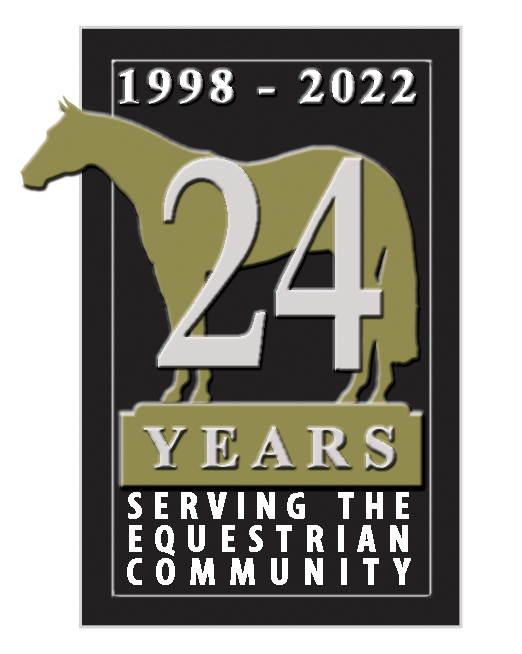AHC Comments on America’s Great Outdoors Initiative
October 15, 2010 On April 16, 2010, President Obama launched the America’s Great Outdoors Initiative (AGO). A central part of the initiative was an effort to collect the view points of Americans. In September, the American Horse Council submitted comments to the Administration concerning the equestrian community’s connection to America’s private and public land.
On April 16, 2010, President Obama launched the America’s Great Outdoors Initiative (AGO). A central part of the initiative was an effort to collect the view points of Americans. In September, the American Horse Council submitted comments to the Administration concerning the equestrian community’s connection to America’s private and public land.
The stated goals of the Presidents initiative are: (1) Reconnect Americans with the outdoors by promoting community based recreation and conservation, advance job and volunteer opportunities related to conservation and recreation, as well as educate individuals in American’s history, culture, and natural beauty; (2) Build upon State, local, private and tribal priorities for the conservation of land, water, wildlife, historic and cultural resources; (3) Use Science-based management practices to restore and protect America’s lands and waters.
The American Horse Council participated in the initial event for the America’s Great Outdoors Initiative held at the U.S. Department of the Interior on April 16. “We were happy to be invited to the conference,” said Ben Pendergrass, AHC Legislative Director. “It was an excellent opportunity to remind the Administration and other attendees of the equestrian community’s unique connection with the land.”
Ken Salazar, Secretary of the Interior, Tom Vilsack, Secretary of Agriculture, Lisa Jackson, Administrator of the Environmental Protection Agency, and Nancy Sutley, Chair of the White House Council on Environmental Quality were directed to lead the initiative.
As part of the initiative the Administration and federal agencies involved held listening sessions around the county and solicited comments from tribal leaders, farmers, ranchers, sportsmen, community park groups, foresters, youth groups, business people, educators, State and local governments and recreational and conservation groups. The information collected at these sessions and submitted comments will be used to complete a report due in November.
“We worked to get the word out to equestrians about the listening sessions,” said AHC President Jay Hickey. “I think it paid off. We heard good feedback from equestrians who were able to attend some of the sessions and agency staff who were involved.”
In September, following up its participation in the listening sessions the AHC submitted formal comments concerning the AGO initiative. The complete comments can be found by visiting the Recreation Page under “Issues” on the AHC website.
In its comments the AHC pointed out that the conservation, management, and use of America’s public and private lands are critical to the equestrian community.
The AHC also noted that the equestrian community and horse industry is extremely diverse. It is comprised of many different pursuits, segments, and participants, exists in every region of the country and involves individuals with many different backgrounds and incomes.
The AHC reminded the Administration of the equestrian communities’ dependence on America’s farmland to feed, raise, breed, and board its horses and the need to protect such land. The AHC specifically requested that the Administration recognize the contribution horse farms and facilities make to preserving open green space, stream buffers, wild life habitat, forests, and pasture. It also asked that horse farms be considered working lands that need to be protected from urban development.
The AHC also commented on the importance of America’s public lands to hundreds of thousands of Americans of all ages who use horses and pack stock to enjoy America’s great outdoors each year. The AHC made clear that the equestrian community believes that recreation is a fundamental and legitimate use of our country’s public lands and that it is committed to preserving those lands.
“Thousands of equestrians are involved in volunteer projects each year building and maintaining trails for all users of public lands,” said Pendergrass. “We hope the Administration will recognize the volunteer contributions equestrians make and their firm commitment to protecting our public lands.”
In its comments the AHC pointed out that recreational riders need well maintained trails, trail heads for horses, access routes, picnic, and camping facilities, restrooms, and stables to make use of our nation’s public lands. It also noted that access has become an increasingly serious issue for equestrians which also must be addressed. The AHC requested that the Administration explore policies that will ensure land managers accommodate all recreational users where appropriate and educate federal land mangers on equestrian issues and encourage state and local governments to do so as well.
“If the goal of the President’s initiative is to connect more Americans with the outdoors, making sure equestrians continue to have access to public lands should be part of any future policy connected with the AGO,” said Pendergrass.
The AHC also stated its belief that equestrian activities can play an important role in reconnecting our young people with the outdoors. It asked the Administration to make equestrian activities an integral part of any effort to reconnect our nation’s youth with the outdoors.
Additionally, the AHC asked the Administration to consider the role horses, mules, and burros can play in allowing access to the outdoors for physically-challenged Americans in any discussion of America’s outdoors.
“We hope as the Administration and Congress determines future policy the contribution America’s millions of equestrians make to support and conserve America’s outdoors and the role equestrian activities can play in connecting Americans of all ages with the outdoors will be considered,” said Hickey. “The entire equestrian community is dependent on America’s public and private lands and we are committed to working with President Obama, Congress, the federal land management agencies and all stakeholders to preserve our great outdoors and ensure their enjoyment and use by future generations of Americans.”

